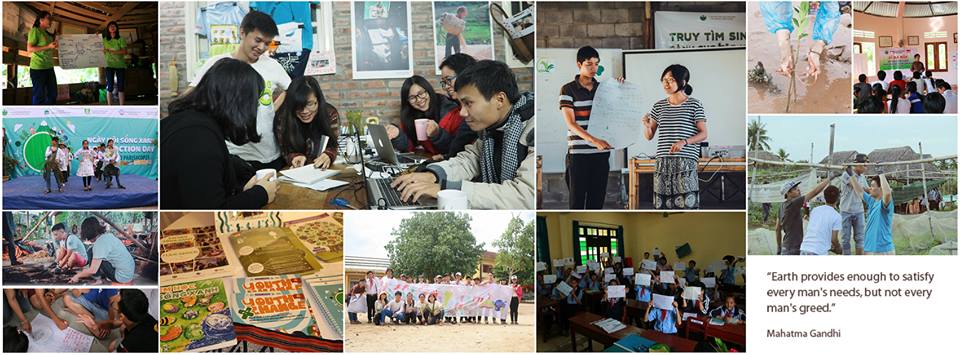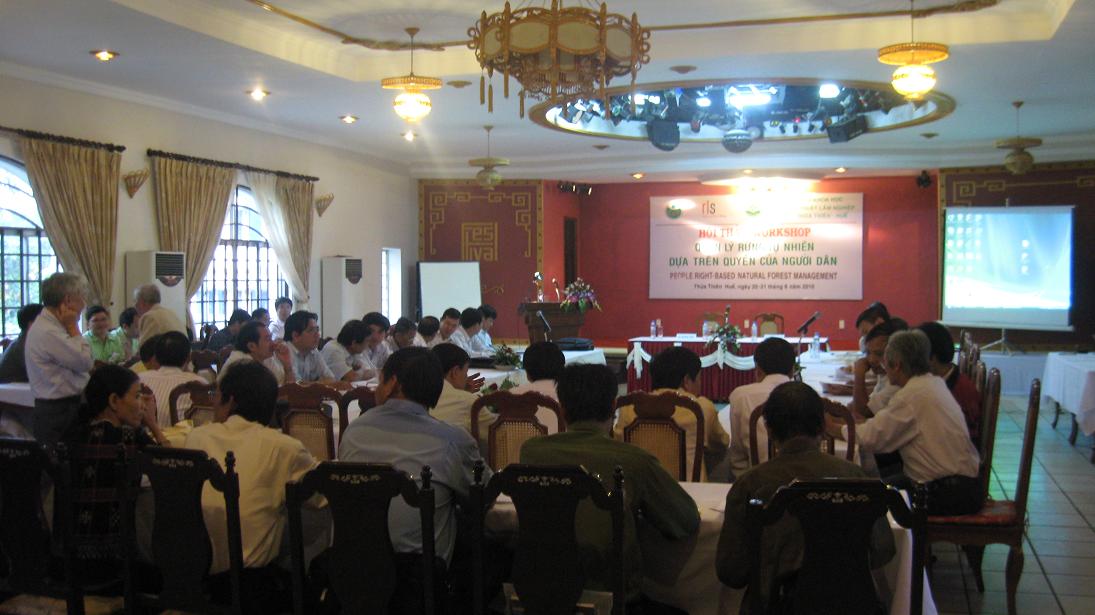Workshop: People right-based natural forest management
The workshop has attracted nearly 70 participants from 10 provinces in the country representing state administration agencies at central and local level, universities, research institutes, domestic and international non-governmental organizations, and local communities directly involving in community forestry management in the past time.
Contributing to the workshop program, 20 presentations have been collected while 10 thematic reports were addressed. Comments provided are basic and meaningful, which are in line with practical situation on various processes, such as community forest management, strengths, weaknesses, opportunities and challenges, policies, benefits of communities, shortcomings of benefit – sharing mechanism, experiences on community forest allocation and contract-based allocation, improvement of forest protection and livelihoods, especially 3 reports addressed by 3 typical agencies representing 3 geographical regions of the country.
Within the workshop, presenters and participants agreed that community forest allocation is a good model, contributing to development of community forestry, village, indigenous and traditional practices of the region. Domestic and overseas projects provided financial support, livelihoods improvement, reduction of deforestation… resulting in better performance of forest management and protection. In some places, results achieved are not so good due to the fact that local people have not involved actively these activities as their benefits are not ensured. There are 8 rights defined on allocation of forest but only relatively satisfactory results have been achieved in implementing such rights in reality, e.g. people are trained, provided with benefits from different perspectives, investment projects. The fact showed that rights seemed to be limited and hardly implementable. For example, beneficiary mechanism is infeasible together with various difficulties faced due to the way evaluation of forest resources is implemented before allocation, of which cost norms applied for contract – based forest allocation for management and protection are very low. Majority of allocated forests are poor and newly – restored while local people are poor without sufficient resources for investment in development of non – timber forest products. Community is not recognized a legal entity. Policies did not focus on rights and benefits of local farmers but the state. In some areas, it is individualistic due to shortcomings of the community and inadequate attention paid to community’s benefits. What would it be if no investment projects is in place? What will happen when the investment project comes to an end?
Through this workshop, a message is sent once again to the state so as to issue practical policies and solutions for better development of community forestry in the coming time. The government has paid substantial attention to forest allocation to communities and supporting international organizations in financing pilot models in provinces, which is aimed to get lessons learnt and experiences. However, there should be research and evaluation initiated to collect and synthesize community – based forest management in Viet Nam on right based approach so as to come up with specific recommendations on policy.
Some major recommendations voiced out in the workshop:
1. Further strengthen forest allocation to local people and communities
2. Issue specific policies on benefits of the community; further decentralize to local authorities and benefits of the communities
3. Increase payments for local people for forest management and protection, zoning for regeneration, and investment norms.
4. Legal status of local community
5. Policies on supporting funding and credits from the state/ international organizations
6. Precious/ indigenous trees species of communities
7. Post – allocation and policies after forests allocated.
8. Building capacity for communities, arrangement of full time staff on forest management and protection, timely prevention of violations
9. Strengthen capacity on people right – based approach towards natural forests
10. Appropriate policies on harvesting of housing and commercial timber

